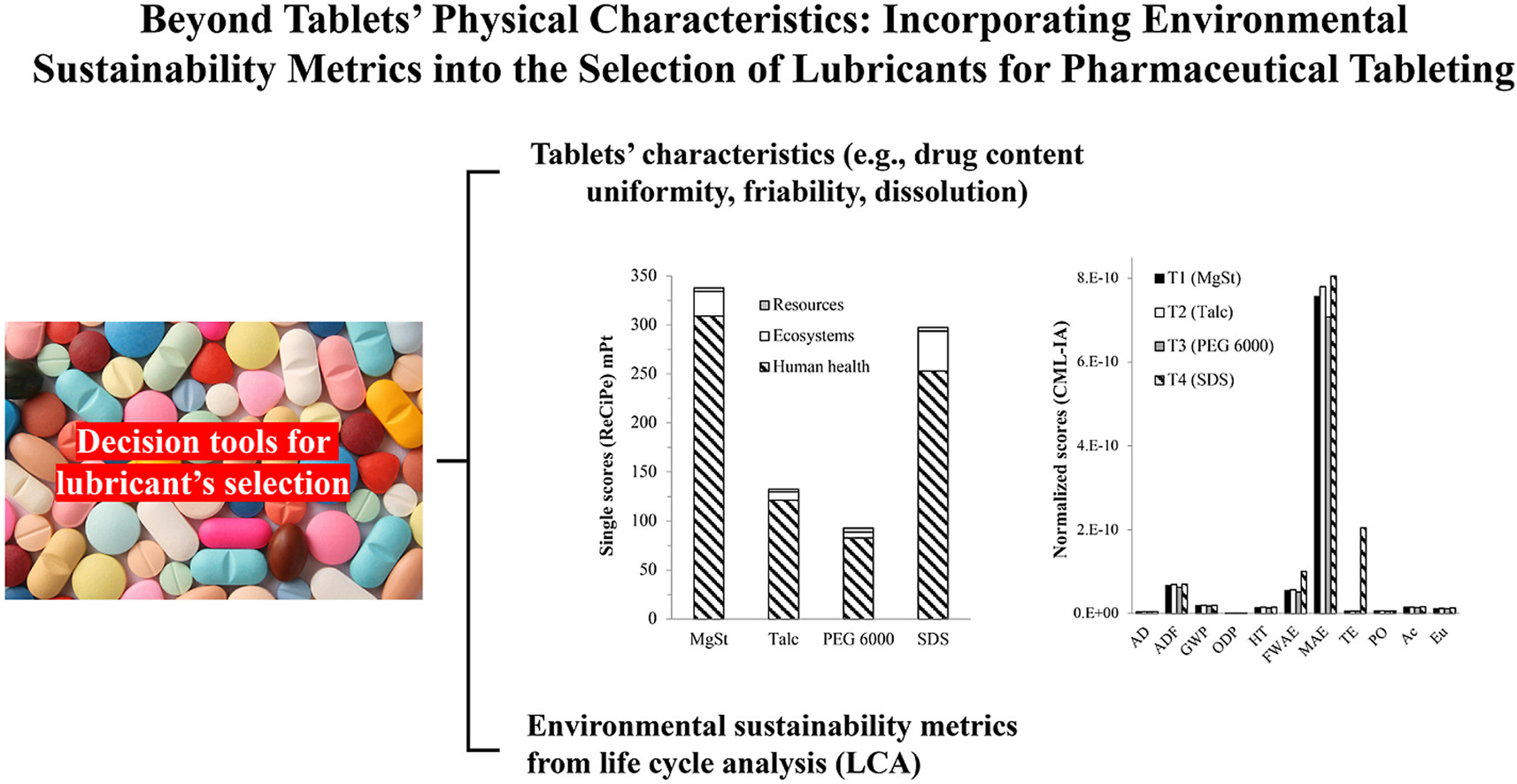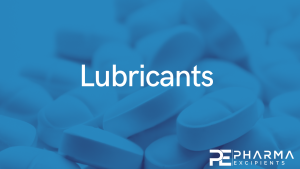Beyond tablets’ physical characteristics: Incorporating environmental sustainability metrics into the selection of lubricants for pharmaceutical tableting

Despite lubricants’ indispensable roles in the production of pharmaceutical tablets. The selection of lubricant for pharmaceutical tableting has been largely empirical, where most tablets are produced using magnesium stearate (MgSt) as the lubricant. Even though many other lubricants (e.g., inorganic materials, polymers, surfactants) can deliver comparable lubrication efficiency as MgSt and often produce tablets with superior characteristics, these alternative lubricants remain not widely used. As the pharmaceutical industry strives to improve the environmental sustainability of its manufacturing, the present work aimed to employ environmental sustainability metrics as one of the decision tools (the other being the tablet’s characteristics) in the lubricant selection process. Ibuprofen tablets prepared with four types of lubricants, i.e., MgSt, talc, polyethylene glycol (PEG 6000), and sodium dodecyl sulfate (SDS), were studied. For each lubricant, environmental impacts of its production from raw materials were quantitatively characterized by life cycle assessment (LCA). S
Highlights
- • Non-MgSt lubricant is as good as MgSt in producing tablets that meet USP’s criteria.
- • Lubricant production affects mostly human health and ecosystem quality.
- • PEG 6000 has the best environmental sustainability, followed by talc, MgSt, SDS.
- • Tablet with PEG 6000 as lubricant has superior sustainability than tablet with MgSt.
- • Environmentally friendly lubricant lowers environmental impact of tablet production.
Subsequently, LCA of ibuprofen tablets prepared using different lubricants was performed. Kilo-scale tableting experiments were carried out to generate material and energy flow data for the LCA. The results of the tableting experiments showed that ibuprofen tablets’ characteristics were minimally affected by the type of lubricant used and all tablets could meet the criteria for friability, weight variation, drug content uniformity, and dissolution. The LCA results revealed that PEG 6000 had the best environmental sustainability profile, followed by talc, MgSt, and SDS. Owing to PEG 6000’s superior sustainability profile, tablets prepared using PEG 6000 as the lubricant generated smaller environmental impacts than tablets prepared using MgSt. Therefore, the incorporation of environmental sustainability metrics into the lubricant selection methodology can improve the environmental sustainability of pharmaceutical tablet production.
Kunn Hadinoto, The-Thien Tran, Wean Sin Cheow, Beyond tablets’ physical characteristics: Incorporating environmental sustainability metrics into the selection of lubricants for pharmaceutical tableting, Journal of Cleaner Production, Volume 362, 2022, 132336, ISSN 0959-6526, https://doi.org/10.1016/j.jclepro.2022.132336.
Read more on Lubricants – Pharmaceutical Excipients here:


